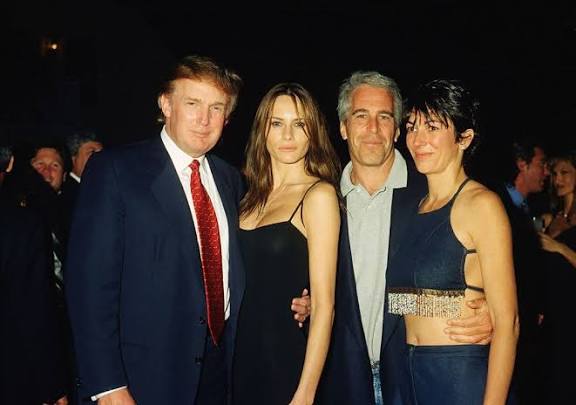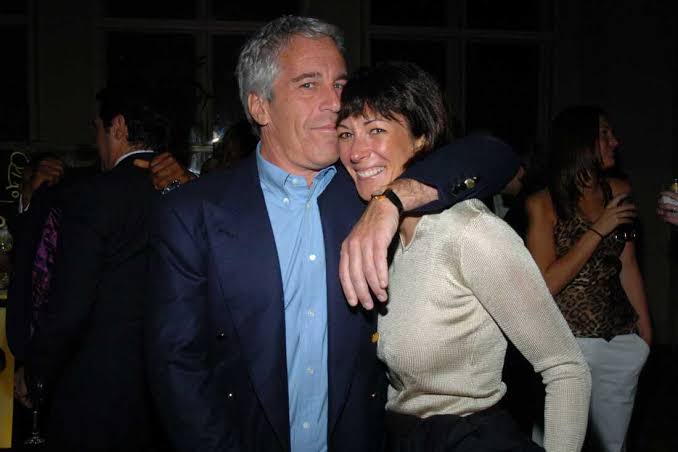The Last Black Voice at The Post: Karen Attiah’s Departure Explained

For a long time, Washington Post columnist Karen Atih said on Monday that he was fired. Today we will discuss about The Last Black Voice at The Post: Karen Attiah’s Departure Explained
The Last Black Voice at The Post: Karen Attiah’s Departure Explained
Karen Attiah’s exit from The Washington Post has generated widespread conversation—not just because she was a high‑profile opinion columnist and Global Opinions editor, but because of what many see it as: a symbolic moment in the ongoing debates over race, media, free speech, and media ownership. Attiah has claimed she was fired over social media posts about Charlie Kirk’s death; the Post has criticized those posts as violating internal policy. The layers here are many: editorial direction, Black representation, social media behavior, journalistic fairness, institutional change, and the broader context of press freedom in polarized times.
Who is Karen Attiah?

To understand what’s happened, it helps first to know who Karen Attiah is, and the significance of her role.
Background and career
Attiah, born in 1986 in DeSoto, Texas, to Ghanaian and Nigerian parents, has established a reputation as a voice on international affairs, race, gender, culture, and human rights. She holds a BA from Northwestern University and an MIA from Columbia University.At The Washington Post
She joined The Post in 2014. Over time, she became Global Opinions editor and later an opinion columnist. Her work earned awards—including a 2019 George Polk Award (shared with David Ignatius) for writing on the killing of Jamal Khashoggi.Activism and public engagement
Beyond writing, she has been involved in education (e.g. adjunct professor roles), projects like her podcast, and initiatives such as the Resistance Summer School. Her voice has often pushed back on systemic inequities—especially those affecting Black people, women, immigrants, and global marginalized populations.
Given all that, Attiah holds not just the role of columnist/editor, but in many readers’ minds, that of someone who brings perspectives from the edges, voices often underrepresented in mainstream opinion sections.
What Led to Her Departure
In mid‑September 2025, news broke that Karen Attiah was fired from The Washington Post. The reported trigger involves her social media posts following the death (assassination) of Charlie Kirk, a conservative commentator.
Here’s a timeline of the key events and claims, along with the conflicting accounts:
The Posts on Social Media
Attiah made posts on Bluesky (a social platform) soon after the killing of Charlie Kirk. She condemned political violence, but also highlighted Kirk’s past divisive remarks—especially about Black women—arguing that rejecting “performative mourning” for certain white male figures isn’t the same as condoning violence. In one post, she quoted Kirk’s comment about Black women lacking “brain processing power.”The Post’s Response
The Post, in turn, described her posts as “unacceptable,” as constituting “gross misconduct,” and argued they endangered the safety of colleagues.Attiah’s Version
She argues she was fired without conversation or warning, that there was no dialogue.
She claims her posts were misinterpreted, especially the one quoting Kirk. She insists she was not celebrating Kirk’s death. She emphasized that rejecting certain grief norms was not equivalent to endorsing violence.
She also frames her firing as part of a broader pattern of silencing Black voices in media, academia, business, government. She says her termination is not just about one social media post but about institutional shifts.
Editorial Leadership & Changing Vision at The Post
Prior to her firing, there had been reports of tensions between Attiah and the new leadership of The Post’s opinion section. In particular, with its new editor Adam O’Neal. Some columnists were told their writing did not fit the new vision. Attiah was reportedly asked (or encouraged) to consider a buyout. She publicly noted that she was then the last Black staff columnist in the opinion section.Final Decision
The decision to terminate was allegedly based on internal judgments about those posts. The Post seems to believe the posts breached internal policies; Attiah strongly contests that. The firing comes at a moment of internal repositioning: the paper, under ownership of Jeff Bezos, has reportedly shifted the opinion section’s orientation toward personal liberties, free markets, etc.
Why She’s Called “The Last Black Voice”
This phrase has been used in media coverage and by Attiah herself. It reflects not just her status but a bigger concern:
Decline in Black opinion columnists
Over recent years, many Black staff writers, especially in opinion sections, have either left, accepted buyouts, or been pushed out. Attiah was one of the few remaining full‑time Black opinion columnists at The Post. When she declined a buyout earlier, she remarked publicly that she was “the last Black staff columnist left in the Washington Post’s opinion section.”Symbolism of Representation
Representation matters in media because opinion sections help shape public discourse, influence policy, frame the narrative. Having fewer Black voices, especially in a prominent national paper like The Post, raises questions of whose perspectives are being amplified, whose are being marginalized. Attiah’s departure, for many, represents a gap in that representation.Broader Patterns
Her claim and others’ observations see this firing not in isolation but connected to a larger pattern: press institutions under financial pressure, political polarization, changing business models, editorial realignment, and concerns that critical voices—especially those addressing race and power—are more vulnerable. Attiah explicitly warned that her firing is “part of a broader purge of Black voices” across sectors.
Media, Free Speech & Internal Policy: Competing Claims
A major part of this story is the tension between Attiah’s defenders, who flag free speech, context, fairness, the history of racial power dynamics, and the internal rules of The Post, which must balance those ideals with policy, risk management, and organizational/colleague safety.
Free speech vs responsibility
Attiah and those sympathetic argue that she was exercising her right to critical commentary, especially about power and identity, and that condemning Kirk’s remarks—even quoting them—is part of valid public discourse. The Post’s critique is that her posts, in their assessment, crossed lines: “gross misconduct” is major; “endangering colleagues’ safety” suggests the Post believed there could be real harm arising from the posts. The boundary between strongly worded critique and content deemed harmful is often contested.Procedural questions
Attiah claims that she was not given warning, or a chance to discuss, or even a conversation before being fired. For critics, this raises questions about due process, fairness in how media organizations treat opinion writers, and consistency in enforcement of policies.Editorial direction & ownership influence
Ownership (in this case Bezos) and top editorial leadership matter. Reports suggest the vision for The Post’s opinion section changed—to emphasize personal liberties and free markets—possibly meaning critique of structural inequities or systemic racial critique might fit less naturally in the new template. Whether that played a role in how the Post evaluated Attiah’s work (or found her posts more objectionable) is debated, but many see alignment between her worldview and what’s currently less welcome in the growing editorial direction.
Implications for Journalism & Public Discourse
What makes this firing more than an internal shake‑up are the ripples it sends into larger debates:
On representation and inclusion
The loss of staff of color—particularly in voices that are critical of majority power structures—can narrow what kinds of arguments are heard. It risks making opinion pages less diverse not just in identity but in perspective.For freelancers, contributors, and the safety of public discourse
If journalists believe their employer might fire them without warning based on social media commentary—even quoting someone else—there’s a chilling effect. It may lead writers to self‑censor, especially on topics of race, power, or identity, which often require sharp critique or uncomfortable truths.Changing role of opinion sections
As media outlets reposition their opinion or editorial wings, there may be shifts in what is considered acceptable or desirable commentary. This can reflect both internal values but also external market pressures: audience, advertiser concerns, political pressures, etc.Trust, legitimacy, and potential backlash
For newspapers, reputation for fairness, consistency, and commitment to fundamental journalism values (e.g. free speech, watchdog role) is essential. Incidents like these can erode trust among readers who feel voices are being silenced. Meanwhile, others may argue it’s necessary to maintain civility, safeguard safety, or preserve internal standards.
Criticisms of Both Sides
To give a fair view, there are criticisms of Attiah’s critics and of Attiah herself.
Criticisms of The Post’s stance
• Overreach, possibly. If the firing was hasty and without conversation, that would betray norms of fairness.
• Vagueness. What exactly is “gross misconduct” in this case? What internal policy was violated, and is it being applied consistently?
• Unequal treatment: Would a column or writer with a different background, expressing in different terms, have been judged similarly?Criticisms of Attiah’s posts (as alleged)
• Some critics say she misrepresented or selectively quoted Kirk in ways that removed needed context.
• Others argue that even quoting someone else’s harmful remark, without sufficient framing, can be incendiary.
• The question of how one balances freedom of critique with deterring violence or hatred is always fraught—especially when audience perception matters.
What The Post Has (Not) Said
So far, what the Post has made public is limited:
They have labelled the posts “unacceptable” and the behavior “gross misconduct.”
They claim the posts endangered the safety of colleagues.
They haven’t, as of the latest reports, shown the full internal policy that she allegedly violated, nor released a full transcript of internal conversations (if any) that could substantiate their view.
They have not — publicly, at least — responded in detail to her claim that the firing was done hastily and without any warning.
Context: Wider Trends
The departure doesn’t happen in a vacuum. Several contextual factors are relevant:
Media economics & staffing
Many traditional media outlets are under heavy financial pressure. Buyouts, layoffs, and restructuring of opinion sections are common. Opinion pages sometimes shrink, or shift orientation to appeal to different (often more polarized) audiences.Polarization and public backlash
Social media amplifies mis‑steps or controversial comments very fast. Outrage cycles are intense. For media organizations, the potential for backlash (from readers, advertisers, political actors) looms large.Ownership priorities
When ownership or top leadership changes, so do editorial priorities. With The Post, reports indicate a shift toward commentary focused on personal liberties and markets. Depending on how strictly that is interpreted, it may marginalize writers whose frames involve structural inequality, identity politics, race, etc.“Cancel culture” debates
In public discourse, the idea of “cancel culture” (i.e. someone being punished, dismissed or silenced for statements made) is hotly contested. Attiah’s exit is being seen by some as an example of that. Whether one agrees or disagrees with the term, the tension between editorial policies, public scrutiny, and personal expression is undeniably growing.
What Actually Happened vs. What Remains Unclear
Here’s what seems fairly clear based on available reporting, and what we still don’t know for sure.
Clear
Attiah was fired in mid‑September 2025.
The firing was connected to her social media posts regarding Charlie Kirk’s death.
The Washington Post judged those posts to be violations of internal standards (unacceptable, gross misconduct, safety risks).
Attiah disputes key parts of the Post’s claims: she says her posts were misinterpreted, that she wasn’t celebrating Kirk’s death, that she was not warned or given a chance to respond.
Prior tensions existed between Attiah and new leadership about editorial direction, and there had been discussions of buyout offers.
Unclear / Under‑reported
Exact content of internal discussions prior to firing: Did The Post attempt to talk with Attiah about the posts? What was their internal assessment process?
What specific internal policy(s) were deemed violated, and whether those policies are publicly available or applied consistently.
What was the threshold for “endangering safety of colleagues” in this context? What kinds of risk were assessed? Was there specific evidence of threats or risks tied to the posts?
How much did Attiah’s body of work, her prior relationship with leadership, or her position as a Black voice factor in the judgment (consciously or unconsciously) on both sides.
What future recourse she has (legal or otherwise), or what precedent this sets for others.
Repercussions & Aftermath
The ripple effects are already being felt:
Public reaction
There has been significant backlash in opinion, social media, and among journalists. Many see her firing as a loss for free speech, a loss for representation, and potentially a signal to other writers. Some support The Post’s need to uphold policies. Others argue they over‑correct or overreach.Attiah’s next steps
She has said she plans to continue writing via Substack. Her supporters are rallying around her. The narrative that she was “silenced” is being amplified. Attiah frames her exit as part of a larger trend—making her not just a victim but a symbol in a broader struggle.Internal morale & diversity
For The Washington Post, this could deepen concerns among staff (especially journalists of color) about whether the institution values diversity of opinion as well as diversity of identities. It could affect recruitment, retention, and how safe people feel raising difficult issues.Precedents
Media owners and editors may look at this case (along with others) as a test of how much social media behavior can or should factor into employment of opinion journalists. It could influence litmus tests, editorial guidelines, or internal policies across other outlets.
Broader Questions Raised
Attiah’s departure forces us to grapple with several serious questions in journalism and civic life:
Where is the line between critique and incitement?
Quoting someone’s hateful remark to critique it, especially in a public forum, is a central function of opinion journalism. But institutions may see that as boundary‑pushing, especially when remarks about groups are involved, even if the intent is critique.How transparent should media institutions be about internal policy enforcement?
For trust, it helps if news organizations show consistency, fairness, and explain why certain decisions were made—not just in vague terms (“gross misconduct”) but with clarity. That helps avoid accusations of bias.How to protect dissenting voices, especially from marginalized communities
If writers who critique systemic inequities feel unsafe or likely to be penalized, they might self‑censor. That impoverishes public debate, because many social issues require critical scrutiny of power.Ownership, editorial shift, and pressure from advertisers / politics
Who owns the outlet, and what are their priorities? To what extent do external pressures (political, financial) shape which voices are allowed, which are sidelined?The role of social media in journalism
We now live in a world where a journalist’s off‑work (or non‑article) statements can be judged, and sometimes punished, by employers. What counts as “professional social media conduct”? How much latitude should writers have?
What This Change Means for The Washington Post
Given all this, what does Attiah’s departure tell us about the Post and its possible direction?
Editorial repositioning is real
The Post seems to be reshaping its opinion section. The squeeze between appealing to broader audiences, moderating controversies, and ensuring content aligns with a certain ideological vision (personal liberties, free markets) may limit how openly critical or identity‑focused opinion pieces can be. Write pieces that don’t fit that mold may risk being flagged internally.Risk of narrowing the spectrum of views
Ironically, in trying to avoid controversy, there’s a risk of redundancy: less intellectual diversity, fewer dissenting voices, fewer critiques of power from non‑majority perspectives. For readers, that means a less rich conversation.Reputational risk
The Washington Post has long seen itself as a standard‑bearer for rigorous, independent journalism. If readers believe its policies suppress certain kinds of speech unfairly, or that it punishes writers selectively, trust can suffer.Potential legal / employment precedents
Decisions like this may be referenced in future disputes over contracts, free speech, editorial independence—especially as “social media posts” become more deeply tied to public identities of journalists.
Conclusion
Karen Attiah’s departure from The Washington Post is an event with multiple layers. At its surface, it’s about posts on social media, editorial standards, and institutional policy. Deeper down, it’s about race, who controls narratives, what counts as acceptable critique in mainstream media, and how media institutions are responding (or not) to pressures from ownership, audiences, and politics.
Attiah herself called the firing “hasty overreach,” raising the concern that media organizations may increasingly prioritize risk avoidance over robustness of expression. Meanwhile, observers worry that when the “last Black opinion voice” in a major national paper is removed, the danger isn’t just symbolic—it can shift what kinds of stories are told, which experiences are visible, whose truths are believed.
For readers, this moment is a reminder to pay attention—not just to what gets published, but to who is publishing, under what constraints, and what might be missing from the conversation.
How useful was this post?
Click on a star to rate it!
Average rating 0 / 5. Vote count: 0
No votes so far! Be the first to rate this post.
About the Author
usa5911.com
Administrator
Hi, I’m Gurdeep Singh, a professional content writer from India with over 3 years of experience in the field. I specialize in covering U.S. politics, delivering timely and engaging content tailored specifically for an American audience. Along with my dedicated team, we track and report on all the latest political trends, news, and in-depth analysis shaping the United States today. Our goal is to provide clear, factual, and compelling content that keeps readers informed and engaged with the ever-changing political landscape.




